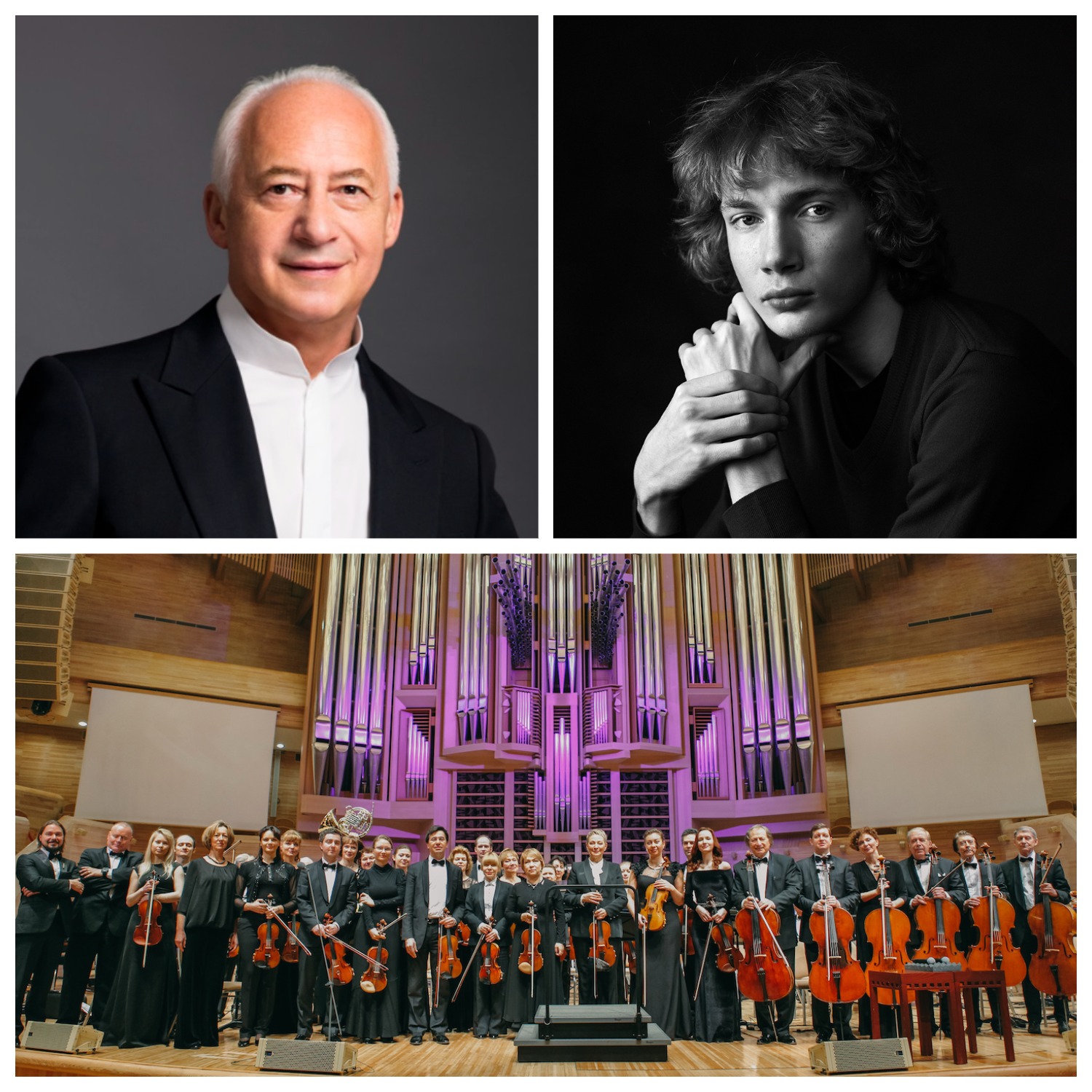September 2, 2022 | Svetlanov Hall of the Moscow Performing Arts Center
Soloist – Ivan Bessonov, piano
Conductor – Vladimir Spivakov
Rachmaninoff. Concerto No. 2 for piano and orchestra in C minor, Op. 18
Tchaikovsky. Symphony No. 4 in F minor, Op. 36
On September 2, Vladimir Spivakov and the NPR are opening the Orchestra's s new season in the Svetlanov Hall of the Moscow Performing Arts Center. The collective, founded in 2003, will celebrate the 20th anniversary of its artistic activities in the new season. During the years that have passed it has become one of the top symphony orchestras in Russia, won audiences' love and critical acclaim in Russia and abroad. Vladimir Spivakov and his ensemble are devoting the jubilee season to Russian classics, including the events dedicated to Sergei Rachmaninoff's 150th anniversary.
Quite naturally Rachmaninoff's Second Piano Concerto, the masterpiece admired worldwide, will open the first season concert. The piano part will be played by Ivan Bessonov, Spivakov's and the NPR's permanent artistic partner, graduate from the Central Music School and the Moscow Conservatory, Professor Valery Pyasetsky's student. The 20-year-old pianist has got prizes and awards at many highly esteemed international competitions, such as Eurovision Young Musicians in Edinburgh, Astana Piano Passion in Kazakhstan, Grand Piano Competition in Moscow and the Rachmaninoff International Competition in Moscow first held this summer.
The second part will feature Tchaikovsky's Fourth Symphony conducted by Vladimir Spivakov. The Symphony, which has come to be the author's most loved, was dedicated, as marked in the score, to “My best friend”, that is Nadezhda von Meck, the patroness who had supported the composer for many years. For her sake Tchaikovsky wrote a detailed program in the symphony-drama transcript. According to it from the Introduction to the Finale there is presented an artist's life full of sufferings governed by Fate, with this being “the fatal power which prevents one from attaining the goal of happiness ... There is nothing to be done but to submit to it and lament in vain”, melancholic memories of the long gone youth, “capricious arabesques” in the inebriated imagination, and a picture of “folk festive merriments as opposed to the artist's loneliness and grief.”




